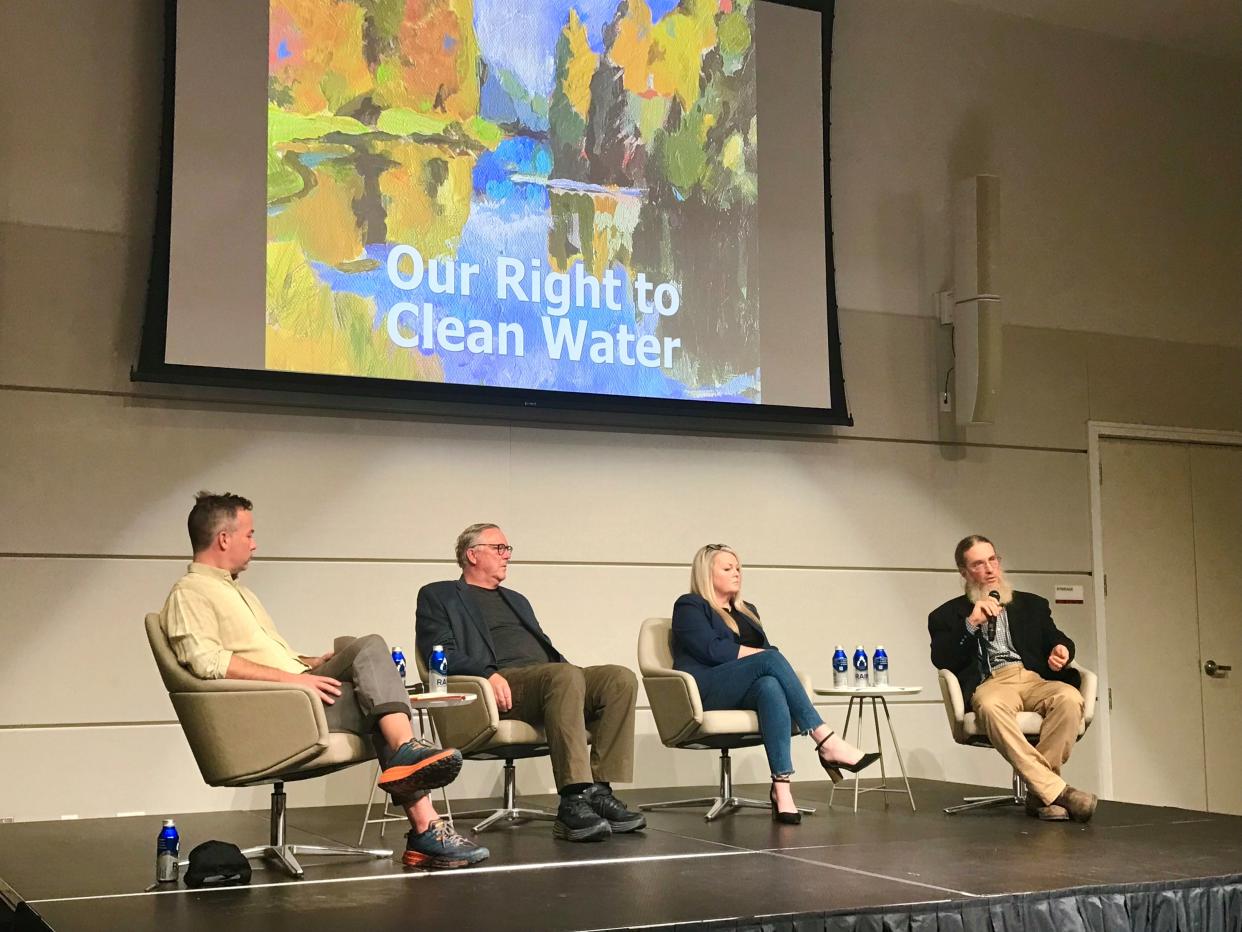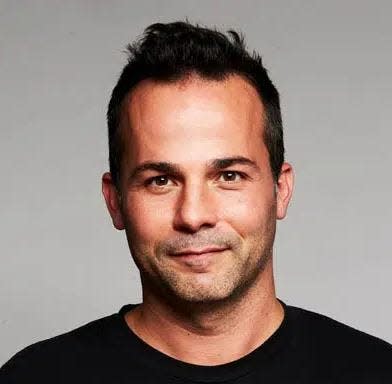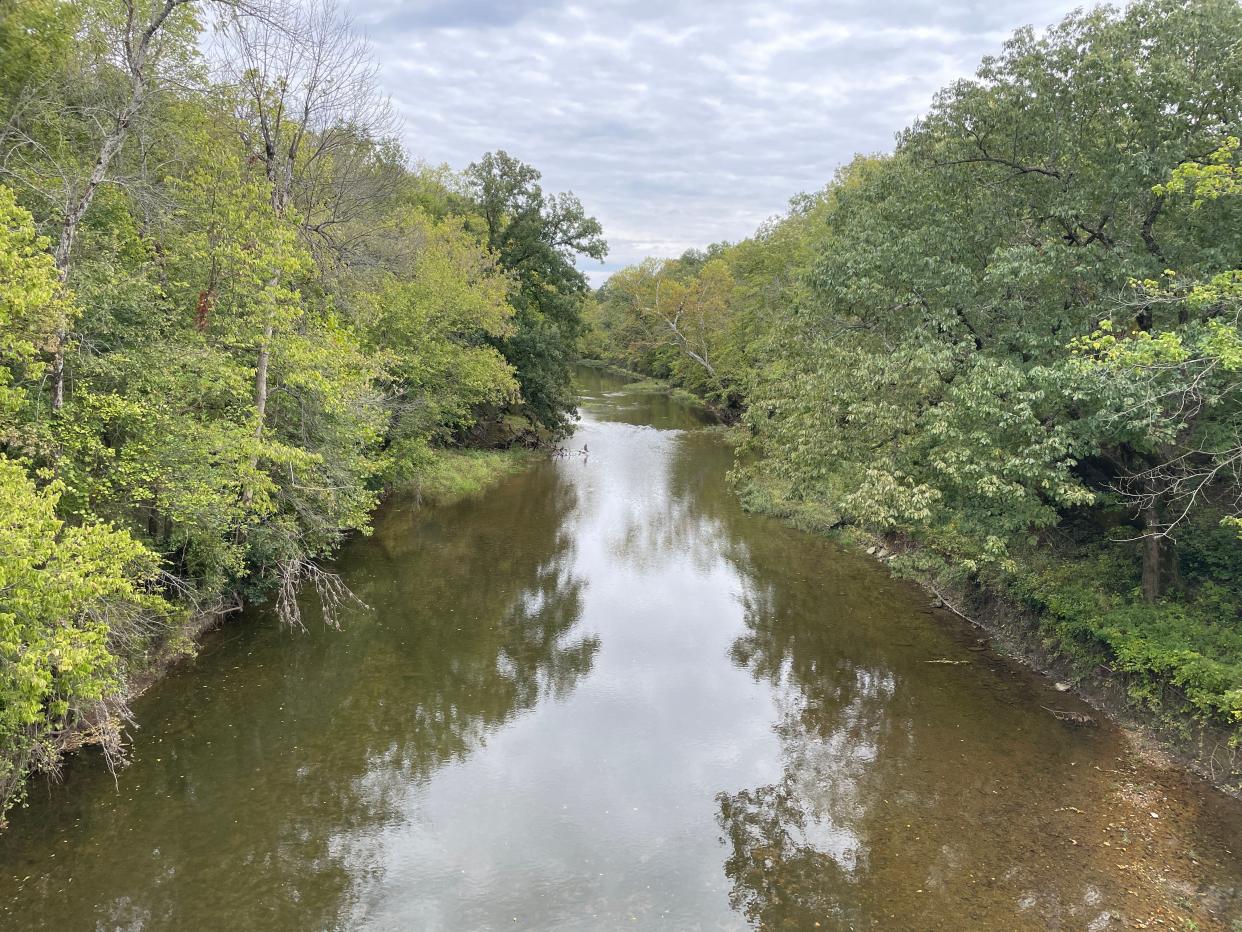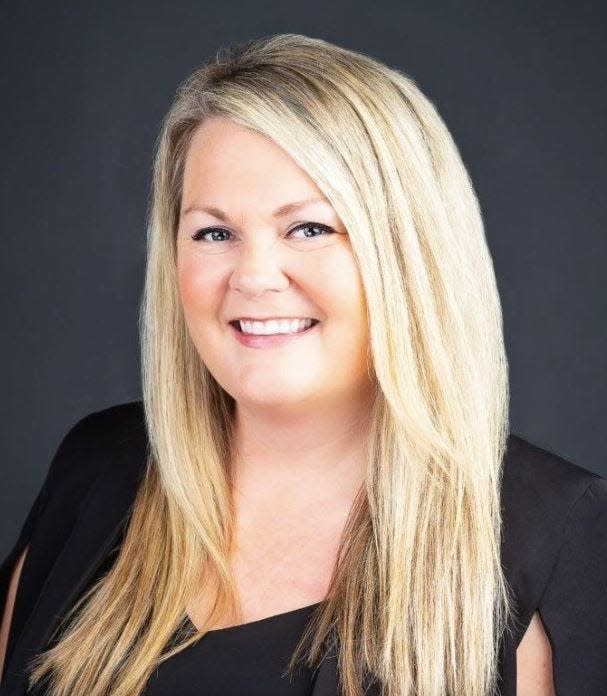Advocates at 'Clean Water Now' event urge MO residents to take action, stop pollution

A noted water quality research engineer who has documented the impact of large-scale animal feed operations on the environment, small farmers and rural communities in Iowa stopped in Springfield on Friday evening to issue a warning.
Chris Jones, who has authored a new book "The Swine Republic: Struggles with the Truth about Agriculture and Water Quality" said the time to act is now if Missouri does not want to replicate the pollution that has plagued his home state.
Jones, an expert in hydroscience who recently retired from the University of Iowa, said Iowa is home to thousands of concentrated animal feed operations — a CAFO has at least 1,000 confined or stabled animals — far more than the 500 or so CAFOs present in the Show-Me State.
He said the shift from small, independent and family-owned farms to large animal operations, some of which are corporately owned, has been disruptive and created profound environmental challenges.
"If you try to stave off CAFOs down here and preserve your water quality, you will have to fight," he warned Friday.
"It is not hopeless but just keep in mind that you are in for the fight of your lives to preserve your natural resources once the big livestock producers" start to expand, he said.

Jones was the main attraction at "Clean Water Now" events Thursday in Columbia and Friday in Springfield. He was part of a panel that included:
Tim Gibbons, communication director for the Missouri Rural Crisis Center, which represents independent family farmers, rural families and their communities and citizens concerned with food supply, natural resources and democracy;
Jess Piper, executive director of Blue Missouri and a voice for the "Dirt Road Democrat" movement. The former teacher from northwest Missouri is an advocate for rural communities and public schools;
Curtis Millsap, who along with wife Sarah and their children, operate Millsap Farms just four miles north of Springfield. Their diverse 25-acre farm includes organically grown flowers and vegetables.
Even though the Springfield event was the Friday before a holiday week, more than 125 people showed up to the Judy Thompson Conference Center on the campus of Drury University.
Interest was heightened because Missouri Prime Beef Packers, based in Pleasant Hope, recently has sought a permit from the state Department of Natural Resources to dump treated wastewater in the Pomme de Terre River.
Residents in communities surrounding that water source — just 50 miles north of Springfield — have been fighting the permit. DNR recently issued a draft notice indicating its intent to deny the permit.
The final decision is still up in the air with public hearings set for December and early January.
Speakers stress danger to land, water supply
Dave Coonrod, an environmental advocate and volunteer with Missouri Guardrails, a group working to protect property rights and clean water, started the two-hour event by noting the learning curve for this issue is steep for many.
Coonrod, former Greene County presiding commissioner, urged the crowd to get informed, spread the word, and reach out to those who set policy and make laws in an effort to protect water quantity and quality.
"When we get up every day, I think most of us without a second thought turn on our tap and it's clean and you can drink right out of it," he said.
Gibbons urged the audience to support limitations and oversight for any large-scale, corporate and multi-national farm and animal operations.
He said buffers must be set, at the state and local levels, because CAFOs generate concentrated animal waste, which must be handled properly so it does not end up in a water source.

"Local control is having local people, local county commissioners generally create additional setbacks — setbacks from the CAFO to people's houses, setbacks from the waste application from people's personal property, from farms that have been there for generations, from water sources," he said.
In Missouri, the Republican-controlled legislature severely curtailed local control over CAFOs with a 2019 law that prohibits cities and counties from adopting regulations that are stricter than those at the state level. Cedar County commissioners in the Stockton Lake area were among those who challenged the law, only to be defeated when it went to the Missouri Supreme Court.
In moderating the discussion, Gibbons said the encroachment of large-scale operations has led to dire outcomes for farmers, consumers, rural communities and the environment.
"Today, a handful of corporations dominate the U.S. pork market, sidelining countless family farm hog producers. This consolidation has far-reaching implications for our food system, national security, and the livelihoods of countless farm families," said Gibbons, in a news release prior to the event.
More: MO Supreme Court ruling against Cedar County spurs worries about Springfield water supply
"With a new Farm Bill on the horizon, we need a fresh vision and a Farm Bill crafted for and by Americans, taxpayers, farmers, and consumers — not one dictated by corporate interests."

Jones said Missouri is fortunate because there is ample land set aside for public use and conservation, which is not the same in Iowa.
"In Iowa ... everything that can be farmed, it is farmed," Jones said. "We don't have these natural areas where we can buffer the effects of farming."
Small actions can add up, advocates say
Millsap, who started a farm north of Springfield where he raises vegetables, flowers and his children, said one way to fight back is to support small and independent farmers.
"There are a lot of bad things in the world and there is a lot of Goliaths but there is also a lot of little stories that are gradually making a difference," he said.
An organic farmer, he said there are no silver bullets but there are ways to make small differences that will pay off in bigger ways later.
He said big issues, like water quality, will not be solved with "one big overarching" fix. Instead, he argued small steps will tap or nudge toward the right outcome.
"What have I learned from farming for 16 years? One of the things I've learned is that small actions matter. They aren't the whole thing but every time somebody chooses to buy food that was produced in a way that is better than we have described here — that honored the virtue of clean water, that honored biodiversity, that sequestered carbon — then they are tapping that little silver hammer," he said.

Piper, who made an unsuccessful bid for the state House in 2022, said efforts to protect water quality and family farms are critical to the survival of small towns, hospitals and school districts.
She said the "challenges of rural decay and disinvestment are all intertwined."
Piper said given that Republicans have a supermajority in Jefferson City, any effort to fight expansion of CAFOs in Missouri will have to get creative and loud. She added that a supermajority of either party limits opposition.
More: Community around Pomme de Terre Lake rallies against beef packers' plan to dump wastewater
"What Chris is talking about that happened in Iowa, the same thing is going to happen here unless we stand up and we talk back," she said. ''And every single one of you in here deserves better than that and so do your kids and grandkids."
She offered a litany of steps that citizens can take to protect natural resources in Missouri.
"Talk to folks, call your representatives, if you can run for something run for something, write letters to the editor, find a candidate, a nominee, that you believe in, write postcards for them, open up your wallet," Piper said. "Sometimes you have to budget for democracy. Send someone a few dollars so they can work on your behalf."
This article originally appeared on Springfield News-Leader: Experts at 'Clean Water Now' event urge MO residents to take action
